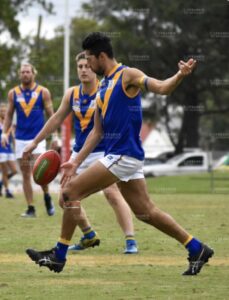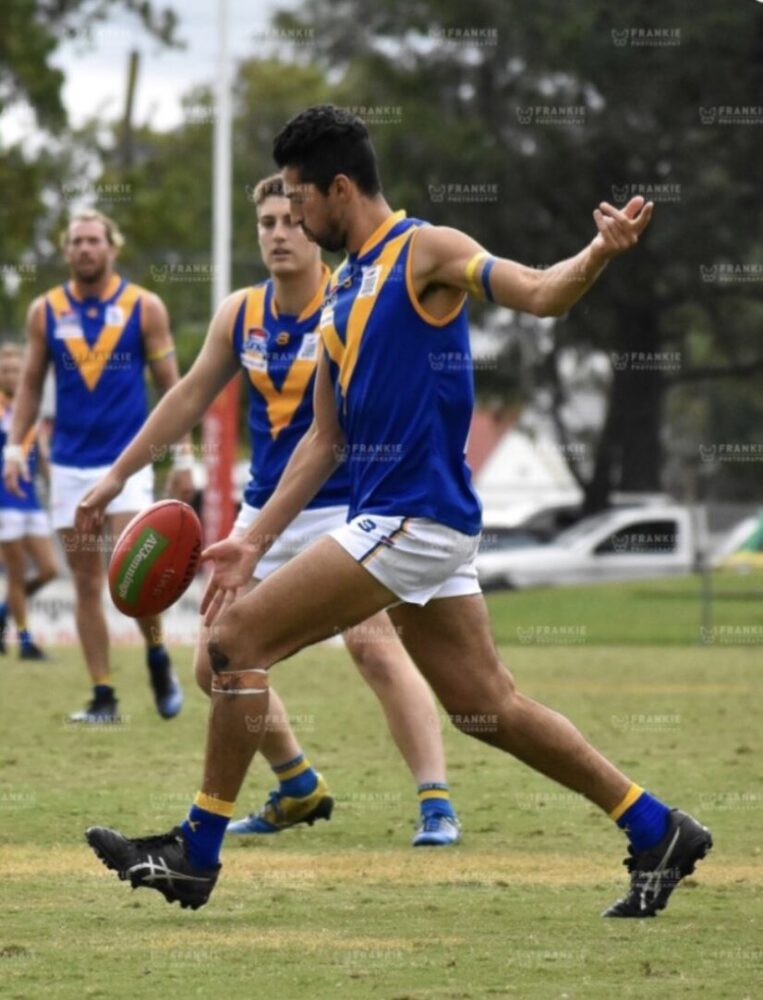A corky (muscular contusion) typically occurs when you have experienced direct trauma to a muscle, causing the underlying muscle fibres to bleed and form into a bruise hours later.
 Footballers and netballers are amongst the many athletes who might experience a corky in contact sport – mostly in the thigh region, but can occur in the calf, low back and glutes. It might happen when being bumped or having an opponent land on you, but the most common cause of a corky is being knee’d.
Footballers and netballers are amongst the many athletes who might experience a corky in contact sport – mostly in the thigh region, but can occur in the calf, low back and glutes. It might happen when being bumped or having an opponent land on you, but the most common cause of a corky is being knee’d.
It usually leaves us with a ‘dead leg’ feeling, and we often try to run it out on a Tuesday night without treating it properly. Swelling, bruising and pain are the symptoms likely to follow, which can limit running speeds, range of motion and ability to weight-bear.
Depending on the severity, the corky could recover in a couple of days, while a more severe bleed may take up to a few weeks to heal completely. A full return to your sport will also depend on your ability to achieve full strength and complete range of motion.
If a corky on the severe end of the scale isn’t treated properly, sometimes oddly formed scar tissue may develop in the muscle, or calcification (small bone) occurs within the bruise, prolonging pain and restriction of function.
The initial phase of managing your corky involves resting with the use of ice and compression to reduce the swelling and bleeding as much as possible.
In the first 24-48 hours after the injury:
- Apply ice for 10-20 minutes every hour
- Wear a compression bandage over the injured site – except when sleeping
- Keep the injured site elevated
- Avoid running, massage, heat packs and alcohol – all may increase the swelling
After the first 48 hours, you can focus on reaching pain free range of motion and re-strengthening the affected muscles. As an example, if your corky is in your quadricep – try the gentle exercises in the video to assist with recovery.
As soon as you can, you should see an osteopath to assess the severity of your injury. Osteopaths can provide manual therapy, stretching and exercises to speed up the recovery of your corked muscle and surrounding structures. We can also provide advice on managing and/or reducing the risk of future sports injuries.
If you have had a compressive impact to a muscle while playing sport, see one of the osteopaths at Pakenham Osteopathy to assess your injury and help get you back to playing at your full capacity. For further information please feel free to reach out to me via email dylan@pakenhamosteopathy.com.au
